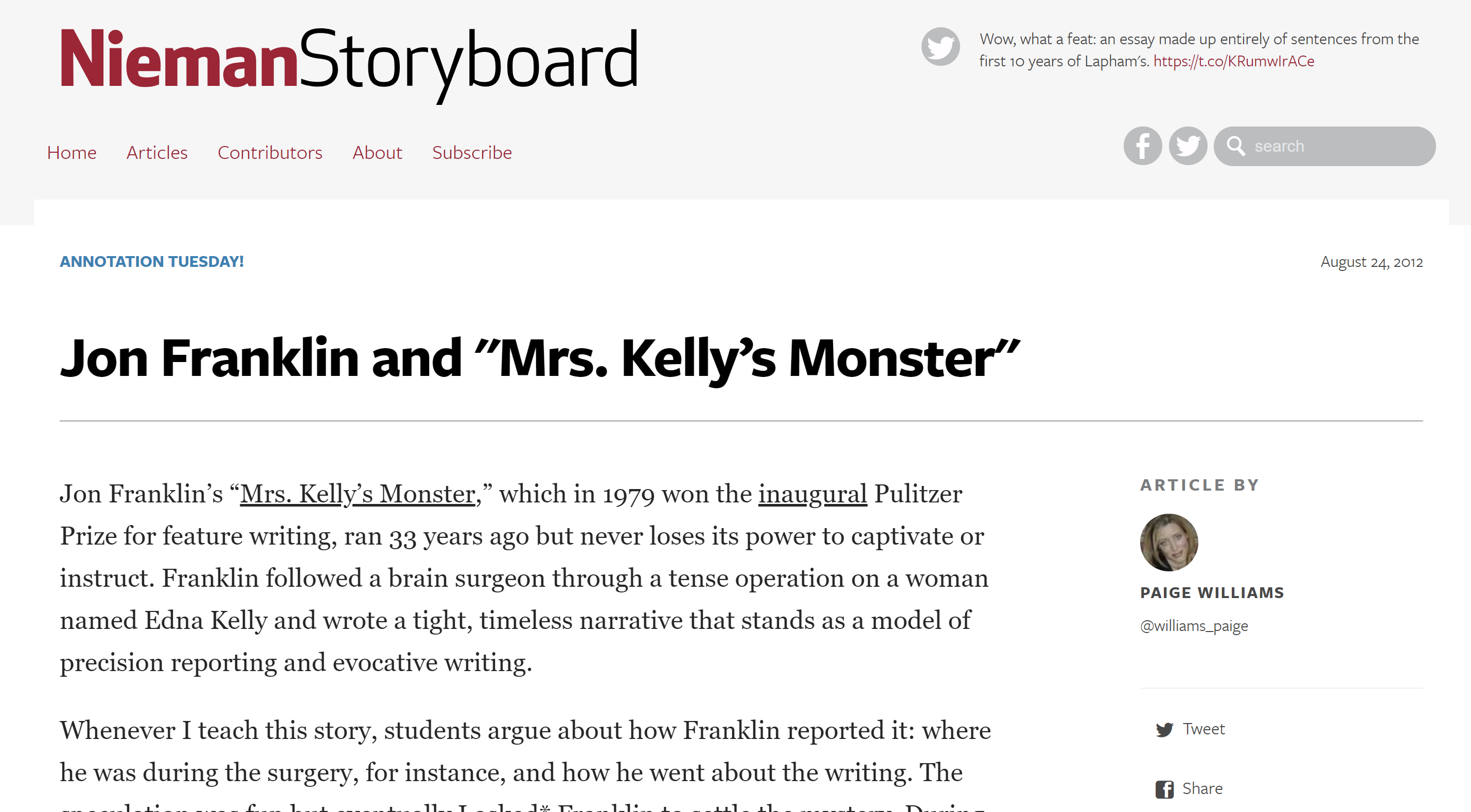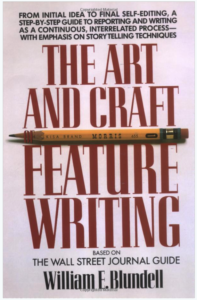This page is devoted to feature writing, one of my favorite styles of writing. In the “old days” of newspapering, the Sunday edition of the paper was carried by a full-length feature that told the story of someone or something important in a colorful, dynamic way.
Definition
Good features inform readers about a matter that is important and timely. They do it in a way that reveals human nature or perhaps even increases the reader’s understanding of it.
Often, features begin with an anecdotal lead, include a nut graf and convey the quoted voices of people who have differing views on the subject.
Features vs. narrative non-fiction
Narrative non-fiction articles are a type of feature writing, but everyday features rarely qualify as literary journalism.
More of my thoughts on narrative non-fiction (or literary journalism) here.
Selected Clips
Article: The Hero's Journey Structure for Writers of Narrative Non-Fiction and Feature Writers
When I discovered the Writer’s Journey: Mythic Structure for Writers by Christopher Vogler, I wondered why I had never heard it discussed among journalists and writers of narrative non-fiction.
It’s all about recognizing the steps in a hero’s journey and making those come to life in your narrative. The book takes the hero’s journey as defined by Joseph Campbell and makes it practical for writers. It’s focused on fiction but applies to non-fiction as well.
As I worked through the book, I frequently had to stop and write down new “treatments” and mini stories that came to mind as I thought about what I read and explored the dramas in my own life.
When I wrote a 90-page book manuscript about a Turkish woman murdered by her brother, I used a traditional outline to organize the overwhelming amount of information and then wrote from the outline. (More here on why my book was never published.)
During the outline phase, I analyzed the main character’s complication, point of insight and resolution and made sure these came out in the dialogue and scenes, as taught by Jon Franklin in Writing for Story.













